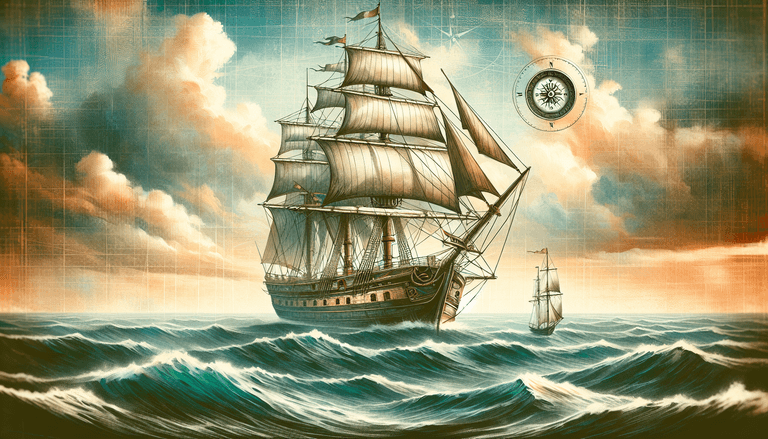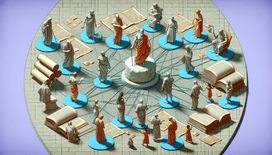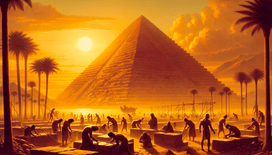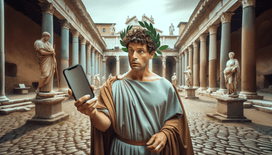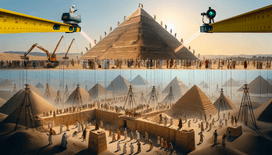Ahoy there, fellow adventurers of the mind! Today, we set sail on a daring journey through time and technology as we explore the tantalising question: What if Ferdinand Magellan, the legendary Portuguese explorer, had access to a GPS? Fasten your seatbelts, or, in this case, secure your life jackets, because this tale is bound to be more riveting than a live-streamed drum circle by the shores of Lisbon.
The era of exploration: when maps were as accurate as a toddler's doodle
Picture this: the early 16th century, when maps were less of a guide and more of a "here be dragons" survival game. Magellan, determined chap that he was, set off with a fleet keen to chart a course to the Spice Islands, known today as Indonesia, by travelling westward. His mission was clear: prove that the Earth is round and find a new route for those tantalising cloves, nutmeg, and other seasonings that would make your average meat stew taste far less like boiled socks.
The journey was, in true Shakespearean fashion, a comedy of errors, with ships lost, crew mutinous, and celestial navigation about as reliable as a fortune cookie horoscope. But what if, in a twist of historical fate, Magellan had stumbled upon a waterproof GPS device? What then, dear reader, would have become of our brave nautical hero?
A GPS in every port: navigating the high seas
With a GPS in hand, Magellan's circumnavigation would likely have resembled less of a fraught maritime mystery tour and more of a scenic cruise with a distinctly luxurious air (and fewer sea lions). Forget dead reckoning and those finicky stars; with GPS, Magellan and his crew could confidently scoff at Neptune's misdirections while the automated voice of a modern-day sat-nav "recalculates" after every wrong turn past parasitic shoals and collar-grabbing storms.
Never again would the anxious cry of "Land Ahoy!" echo through the masts under false pretences. No, they could simply plunge ahead towards distant coastlines with the precise smugness that only one guided by omnipotent satellites can possess. Villages would be approached not from stars and seabirds, but from red pins on a digital map. "South America dead ahead; recalibrating," the stern yet assuring voice might quip gaily, removing any nautical doubts from their salted brows.
Onward to the Spice Islands: less drama, more "siri-ously" fast solutions
When faced with the legendary Strait of Magellan, rather than a bewildering maze of islands and potentially hostile indigenous tribes, a GPS would have offered our fabled explorer the ultimate "you are here" sign. With the path lit up brightly on his digital device, his fleet would sail smoothly through the treacherous Chilean fjords, leaving little space or rationale for mutiny or maritime murmurings.
Crew members would swap tales of survival for those of surprisingly accurate weather updates, courtesy of their digital appendage, a device capable of issuing urgent squall warnings and likely sporting a delightful buoyancy in inclement conditions.
And let's not forget the immeasurable value of a device that not only shows them around the world but back into their families' arms with timely notifications: "Dinnertime: Just 214 nautical miles to go! ETA: Three more galleon-lengths ahead." Imagine the relief; imagine the joyous homecomings devoid of sun-baked scavengers and scurvy.
A lasting legacy: mapping the world with the touch of a button
While we might chuckle at the idea of Magellan calling out "OK, GPS!", there's a serious elegance in how technology might have reshaped his legacy. Rather than remembered as the man who faced a seemingly infinite sea of dangers, our intrepid explorer could have been woven into a tapestry of effortless exploration and unfettered curiosity.
His office might proudly display a golden plaque: "First Explorer to Circumnavigate with Technology". Rather than chancing survival, the streamlined sojourn might have streamlined bureaucratic charting procedures across the continent itself. Magellan's trip would become a blueprint for efficient nautical navigation, sparking enthusiasm not for perseverance in the unknown, but for pragmatism in the face of the vast yonder we so beautifully call home.
Now, while a GPS might make any sailor's life immeasurably easier, we must also recall the true nature of exploration lies not in outcomes but in the mystery and wonder of the journey itself. As we return to our own era, our imaginations kindled with possibilities, let us remember to welcome both the tools of today and the intrepid spirit of the past. Sail forward, brave discoverers of tomorrow, and may your GPS be ever charged.
